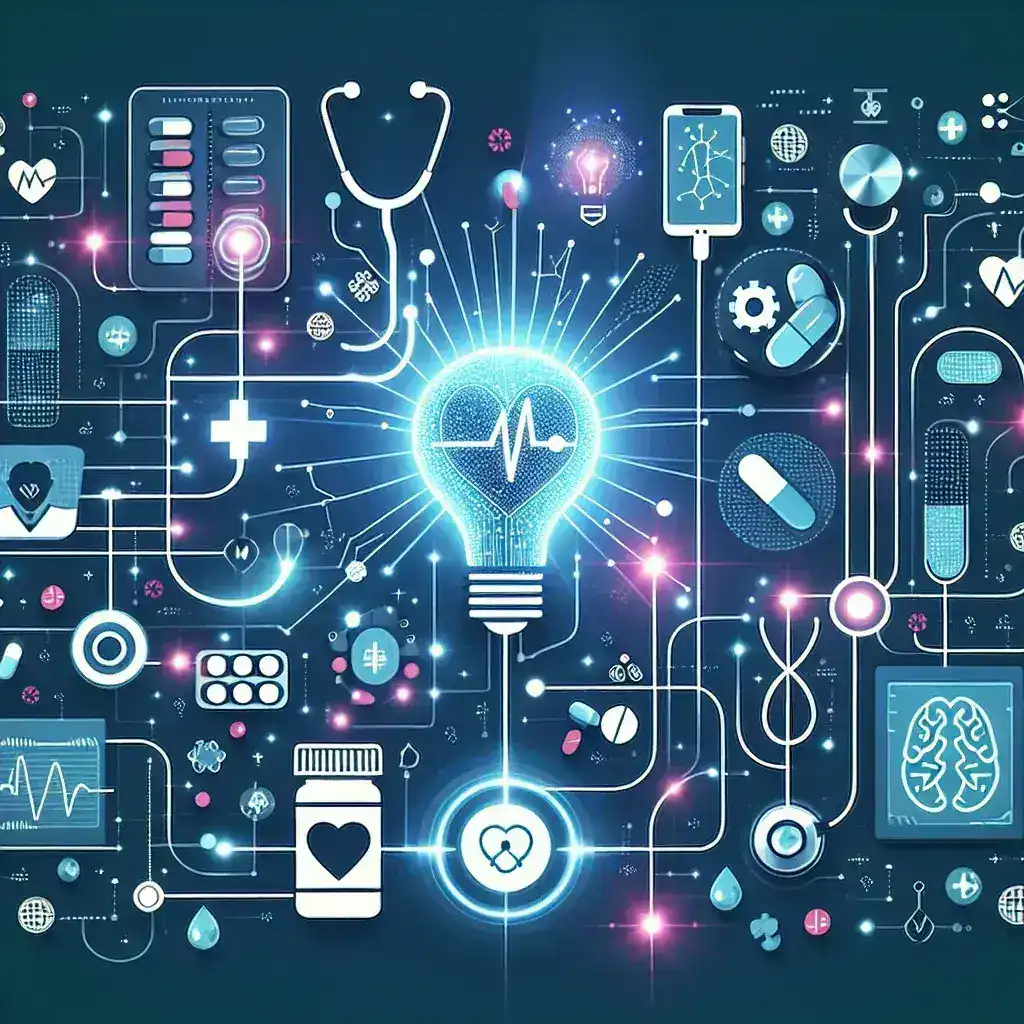Introduction
The healthcare industry is undergoing a significant transformation, driven by advancements in technology. Among these, artificial intelligence (AI) stands out as a revolutionary force that is reshaping how healthcare providers deliver care, how patients engage with their health, and how research is conducted. In this article, we will explore the myriad ways AI is transforming the healthcare industry, examining its applications, benefits, challenges, and future potential.
The Scope of AI in Healthcare
AI encompasses a variety of technologies, including machine learning, natural language processing, and robotics. Its application in healthcare is vast and varied, including:
- Diagnostics: AI algorithms can analyze medical images, lab results, and patient data to identify diseases earlier and more accurately.
- Personalized Medicine: AI can help tailor treatment plans to individual patients based on genetic information and other variables.
- Operational Efficiency: Smart systems can streamline administrative tasks, reduce costs, and improve patient workflow.
- Patient Engagement: AI-driven chatbots and virtual health assistants can enhance patient interaction and support, providing timely information and guidance.
- Research and Drug Development: AI accelerates the drug discovery pipeline and facilitates clinical trials by analyzing massive datasets.
AI in Diagnostics
One of the most promising applications of AI in healthcare is in diagnostics. For instance, AI algorithms have demonstrated remarkable accuracy in interpreting medical images:
Enhancing Image Analysis
Techniques such as deep learning are employed to analyze images from X-rays, MRIs, and CT scans. AI systems can highlight abnormal patterns that may be missed by the human eye. Studies show that AI can achieve diagnostic accuracy rates comparable to, and sometimes better than, human radiologists.
Clinical Decision Support
AI systems provide clinical decision support to healthcare providers, offering evidence-based recommendations that enhance patient outcomes. By analyzing large datasets, these systems can help identify the most effective treatments and diagnostic procedures tailored to individual patients.
Personalized Medicine and Treatment Plans
AI is also crucial in advancing personalized medicine, where treatments are customized to meet the unique needs of individual patients:
Genomic Data Analysis
AI tools can analyze genomic data to uncover insights about a patient’s susceptibility to certain diseases or their potential response to specific medications. This helps healthcare providers develop personalized treatment plans that can significantly improve outcomes.
Predictive Analytics in Treatment
AI-driven predictive analytics can forecast how a patient may respond to treatment based on historical data, optimizing therapeutic approaches and reducing trial-and-error processes.
Optimizing Operational Efficiencies
Beyond patient care, AI is enhancing the operational side of healthcare organizations:
Streamlining Administration
AI can automate repetitive tasks such as appointment scheduling, billing, and claim processing. This not only reduces the administrative burden on staff but also minimizes errors, resulting in better patient satisfaction.
Resource Management
AI algorithms can analyze patient flow and resource utilization, helping healthcare facilities to optimize staffing, reduce wait times, and improve overall efficiency.
Enhancing Patient Engagement
AI technologies such as chatbots and virtual health assistants foster better patient engagement:
24/7 Availability
AI chatbots can provide patients with instant answers to common health inquiries, medication reminders, and appointment scheduling, enhancing accessibility and convenience.
Personalized Health Insights
By analyzing patient data, AI can send personalized health recommendations and alerts to patients, encouraging proactive health management and engagement.
Research and Drug Development
The drug discovery process can be both time-consuming and costly. AI has the potential to expedite this process dramatically:
Data Mining for Drug Discovery
AI can sift through massive biological datasets to identify new drug candidates, predict their efficacy, and suggest potential therapeutic uses.
Clinical Trials Optimization
AI can enhance the design and execution of clinical trials by identifying and enrolling suitable participants more efficiently and predicting outcomes based on historical data.
Challenges in AI Implementation
Despite its immense potential, the integration of AI in healthcare faces several challenges:
Regulatory Compliance
Healthcare is a highly regulated industry, and AI applications must comply with strict regulations to ensure patient safety and data privacy.
Data Quality and Accessibility
AI systems require access to high-quality, standardized data. Variability in data sources and formats can hinder the effectiveness of AI tools.
Ethical Considerations
The use of AI also raises ethical concerns, particularly regarding bias in algorithms that could lead to disparities in care. Proper oversight and diverse data representation are critical to mitigating these risks.
The Future of AI in Healthcare
The future of AI in healthcare is promising. As technology continues to advance, we can expect:
Increased Automation
More routine tasks will likely be automated, allowing healthcare professionals to focus on complex patient care responsibilities.
Improved Interoperability
Advancements in technology will improve data sharing across different healthcare systems, enriching AI applications with comprehensive datasets.
Enhanced Predictive Capabilities
AI’s predictive capabilities will continue to evolve, enabling proactive interventions and better population health management.
Conclusion
Artificial intelligence is undeniably transforming the healthcare industry, enhancing diagnostics, personalizing treatment, streamlining operations, engaging patients, and accelerating research. While challenges exist, the benefits of AI in healthcare far outweigh the obstacles. As we continue to embrace these innovative technologies, the healthcare landscape will evolve into a more efficient, effective, and patient-centered model.

